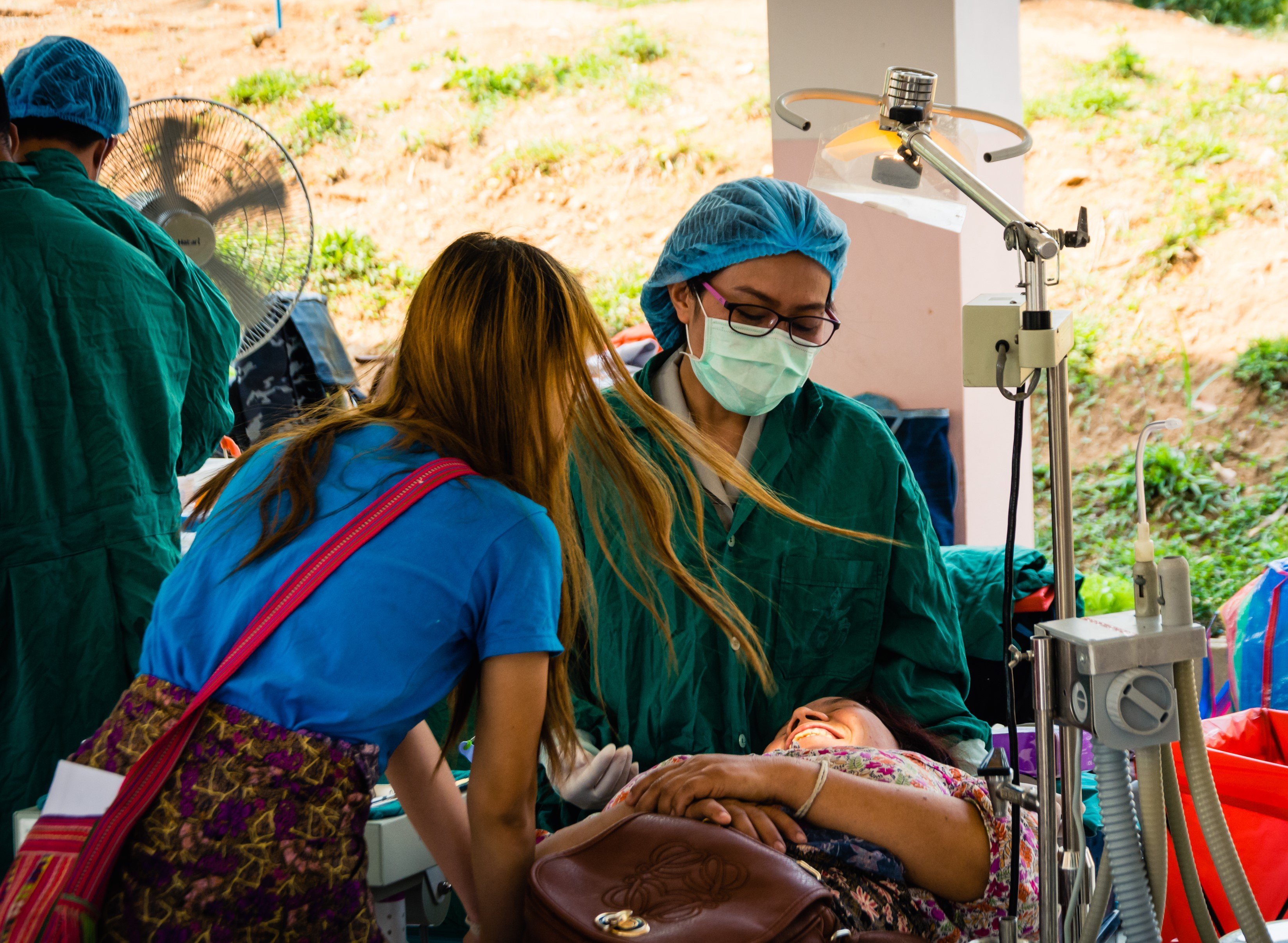The interview is one of the most important steps in the medical school application process. It’s your chance to get to know the medical school in person while demonstrating good communication skills, professionalism, maturity, and your passion for medicine.
Below are six tips to help you make a good impression:
application
Top 5 Questions to Ask Your Pre-Health Advisor
If you’re interested in a career in medicine, one of the most important and helpful people will be your college’s pre-health advisor. There’s a lot of planning and preparation to do before you’ll be ready to apply to medical school, so it’s a good idea to meet with your advisor early. Make an appointment or go to drop-in hours at least once a semester to keep in touch about your classes and activities. When your advisor knows you well, they can help you find opportunities relevant to your interests and strategize about when and where to apply.
Here are some important things to ask about when you meet:
1. What classes should I take and when?
Your advisor can help you create a plan for which pre-requisite classes you should take and how you should schedule them. This will help you develop a timeline for when you’ll be ready to take the MCAT® Exam and apply to medical school. Different medical schools have different requirements, so your advisor can help you determine if you’ll need a post-baccalaureate or other program to help meet coursework requirements.
2. Are there any campus pre-med clubs, email lists, or workshops?
Many colleges have student run pre-med clubs that are a great way to make friends, form study groups, learn about local opportunities, and stay motivated. Your advisor may also send out information through an email list or social media and may hold workshops on various pre-med topics.
3. Does our school have a specific process for writing Committee Letters or Letters of Evaluation?
One of the most important and influential components of your application is the Committee Letter or Letters of Evaluation that you’ll receive from faculty and staff members at your college. The Committee Letter is a document or collection of letters written on your behalf to tell medical schools about you, your commitment to medicine, and your strengths. It’s important to know your school’s procedure so that you can begin early and have your letters sent in on time. Some medical schools will not consider your application complete until they have this letter.
4. Do you know of any medically-related opportunities in the community that will help me get experience?
Some colleges have relationships with local hospitals, clinics or other community-based centers that may allow you opportunities to shadow, volunteer, or work in a lab. There may also be a connection with a local medical school, or another organization, that has a pre-med summer or pipeline program. Your advisor will likely know about many of these and be able to help you decide which might be right for you. They’ll also be able to steer you away from places where other students may have had negative experiences. Be sure to check with them each semester as opportunities may come available at different times of the year.
5. Do you think I should take a gap year before starting medical school?
More and more students are taking a year or more in between undergrad and medical school for various reasons. Last year, more than 50% of accepted applicants had one or more years between graduating college and applying to medical school. Your advisor can help you decide what’s best for you and discuss what opportunities might make you a more competitive applicant.
Whether you’re just starting to think about medicine or you’ve already applied, your advisor can be a great resource throughout the process. For more tips, see AAMC’s Partnering with your Advisor.
Five Simple Tips for a Better Personal Statement
The personal statement is, for many, one of the most dreaded aspects of the medical school application. It can be quite intimidating to be given a blank space so large, with the expectation that you will use it to answer a simple yet complex question: “Why do you want to go to medical school?” This question can be difficult to answer in the form of a personal statement because it is so open-ended; even students who “know” the answer for themselves may feel worried that they are not structuring the personal statement correctly, or are not saying everything that they feel admissions committees want to see. There is also the issue of deficiencies or weaknesses elsewhere in the application; the personal statement is supposed to be a platform for addressing these, but many students struggle to write about these openly and tie this into the rest of the personal statement.
10 Things to Expect From Your Summer Undergrad Research Experience
For some undergrads, this summer will be spent lounging on the beach reading and hanging out with friends. Days will be spent blissfully sleeping until a parent annoyingly insists that it’s time to get up and do something.But alas that’s not for you.
5 Things You Should Know About Secondary Applications
Unlike other graduate school admissions processes, where there is typically only one round of applications, medical schools often have a primary application and a secondary application. The secondary application generally involves one or more essay questions that are meant to help the admissions committee better understand your background, qualifications, and career aspirations. Below are five things you should know about medical school secondary applications.
How to Use Study Abroad to Set Your Medical School Application Apart
All in all, studying abroad provides students with invaluable personal growth, which will translate to … Read more
10 College Classes Pre-Meds Should Take
College as a pre-medical student can be challenging; unlike many other programs, pre-medical programs are … Read more
Picking the Right Medical School Program
There’s a popular phrase, “If you’ve seen one medical school… you’ve seen one medical school.” Every school is completely different, so it’s a good idea to thoroughly research what programs would be best for you before you start the application process.
What are you looking for?

When you’re deciding which medical schools to apply to, consider some of the same factors you weighed when applying to college: Are you looking for a public or private university? Do you want to attend school in your home state or out-of-state? You may also narrow your choices by considering the specialties offered or even which clubs and organizations are available to med students.
Strategies for Success on Retaking the MCAT
Retaking the MCAT requires a different approach to prep than your first time around. Because … Read more
Q & A: Pharmacy Admissions Insider
Applying to professional school can be one of the most daunting challenges of a student’s career. The pharmacy admissions process is no exception, and students may find it overwhelming at times. The Student Doctor Network recently sat down with Jeff, a member of a pharmacy school admissions committee, who shared his perspective on the process and some advice for students.
SDN: What advice would you give an undergraduate student just starting to explore the field of pharmacy? How can they tell whether pharmacy is right for them?
Jeff: The two things that someone who is interested in pharmacy should do are to make sure that they have a good understanding of the roles and responsibilities of a pharmacist in a variety of settings, and that the degree they are seeking is aligned with their career objectives. Many individuals are drawn to pharmacy school based upon nothing more than their perception of what a pharmacist does, with the perception based upon their visits to community pharmacies as customers or the television commercials produced by the national drugstore chains to promote their pharmacists. As you would suspect, their perception of what a community pharmacist does on a daily basis is usually wrong. Others make it to their admissions interview day and tell their interviewers that they want to work as a hospital pharmacist so they can work with patients to discover the cure for breast cancer or diabetes; a noble goal to be sure, but one better suited for a doctoral degree in pharmacology or medicinal chemistry.
Refuse To Take No For An Answer: How I Got Into Dental School After 6 Tries
By Travis Barr, DDS
This article is reprinted with permission from the American Student Dental Association. It originally appeared in December 2014 issue of ASDA News.

For me, the road to dentistry has been more like a grueling endurance race. The ride consisted of three DAT tests, 19 drafts of personal essays and six application cycles in a row—not to mention three-and-a-half years of chair-side experience as a dental assistant, umpteen semesters of graduate courses and some intensive on-the-job training in the roles of husband and father.
I was not what you’d call an ideal candidate. I started college on a football scholarship as a defensive end in Peru, Nebraska, and I was more concerned with making weight, winning games and having a good time than I was with books and grades. Even after I transferred to the University of Northern Colorado, it wasn’t until my junior year that I started thinking seriously about my future and my academic performance. By the time I graduated the following year, I was proud of how far I’d come. I’d turned my performance around, raising my GPA from 2.0 to 3.2 and earning a biochemistry degree while holding down a full-time job and a tutoring position on campus. I had met the girl of my dreams, and I had set my sights on what seemed to be a perfect career for me: dentistry.
Medical School Reapplication: The Perspective of a Reapplicant
I am a reapplicant. Those are four words that every reapplicant shies away from and … Read more
Managing Anxiety on Test Day
Taking the MCAT can be a nerve-wracking experience. In fact, many students develop significant test … Read more
Plan to Make the Most of Your Summer—Now
Summer is a great time to get medically related experience, which can be an important … Read more
Stepping Into the Medical Field and Out of Your Comfort Zone
Are you ready to become a doctor? Making the transition from undergraduate to medical school student, and on to being a full time doctor can be exciting and intimidating at the same time. There are many challenges and obstacles you may face along your journey, but what is most important is that you face them with confidence. Read on for tips on how to make stepping outside your comfort zone a little more comfortable.
Build Strong Relationships With Your Professors
Start out in the classroom. When you are still studying, whether you are an undergraduate or already in medical school, classes should be much more than simply showing up and doing the work. Take time to get to know your professors, if the size of your university/class allows. They have vast amounts of knowledge and experience, and most likely they are more than happy to share that with you!
Top 5 Reasons Applications Get Rejected
In 2013, roughly half of all medical school applicants did not receive an acceptance letter. … Read more
The 10 Lessons Every Pre-Med Must Learn
The premed journey is different for everyone. For some, it’s really not that much of … Read more
Leveraging Pre-Med Learning Experiences for Success
Pre-medical students can – and should – take advantage of the many opportunities available to … Read more
Six Ways for Applicants to Find a Happy Medium with Social Media
Updated September 30, 2021. The article was updated to correct minor grammatical errors and to … Read more
How International Experiences Can Enrich Your Studies as a Pre-Health Student
You’ve volunteered. You get good grades. You’ve shadowed doctors. You’ve done everything you can to be a great student and ideal candidate for professional schooling. What more can you do to make yourself stand out from the crowd? For starters, you can participate in an international internship and shadow doctors in another country! Here are a few ways in which adding an international component adds value to what you are already doing:
Obtain Transferrable Medical Experience
Whether or not a program offers credit, participating in a pre-health internship abroad will be a unique experience that will give you plenty of subject matter to talk about in interviews. You will be able to see what life is like for a foreign doctor, and sometimes you may be able to observe more than you may see shadowing doctors back in your home country, such as observing a number of surgeries firsthand. Having this opportunity is a great way to get more direct observation experience outside of the classroom.




















